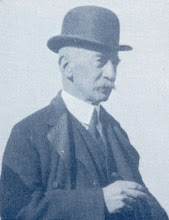When someone deflects one question by answering another, they have engaged in a
frambalism. Now a commonplace in political campaigns, the word is actually derived from a parlor game, called
Frambala!, popular among America's idle rich in the early 20th century. The rules of the game were as follows: Say there are three participants; in the opening round, Person A is asked a question by both Persons B and C; Person A is required to answer one of them and not the other. In the next round, the interrogation rotates: Person B is quizzed by Persons A and C, and so on. The game evolves around the principle of malicious questioning, as questions the questioned are loathe to answer are ferreted-out and flung relentlessly at him.
Frambala! was thus a particularly useful technique among America's landed aristocracy to feed gossip by tugging salacious truths from those reticent to share. The only reason to involve one's self in a match of
Frambala! would be to extract enough dirty laundry from the other participants to vouchsafe one's own secrets in a collective pile of shame. While no definitive record exists of the game's incipient design, George Vanderbilt II is agreed-upon by a majority of scholars as having been the most ardent of
Frambala!s early yea-sayers. The name of the game, as it were, is possibly the result of a blend of the words "frank" and "ramble."
Whatever the details of the history, decades later Frambala! resurfaced in an unlikely place. Novelist John Clellon Holmes (who coined the term "beatnik") discovered lively rounds being played in Greenwich Village between such notable American men and women of letters as Jack and Jan Kerouac, Ken Kesey, Lawrence Ferlinghetti, Elise Cowen, Diane DePrima, Joanne Kyger, Hettie Jones, Neal Cassidy and Alan Ginsberg. Indeed, it is surmised that a game of Frambala! led to the first known tryst between the latter two, for under the administration of the Beats the game adopted a decidedly lascivious nature. Rather than asking questions like knives surgically designed to eviscerate, this gang peppered each other with queries on art and literary history - the price of answering incorrectly was the removal of an article of clothing.
According to my researches, New York Times reporter Jimmy Breslin was the first to apply the word "frambalism" in political coverage when he followed New York City's Mayor Abraham D. Beame on the campaign trail in 1974. Beame, little remembered now, was clearly as adept as any public servant in deflecting one question by answering another.















No comments:
Post a Comment